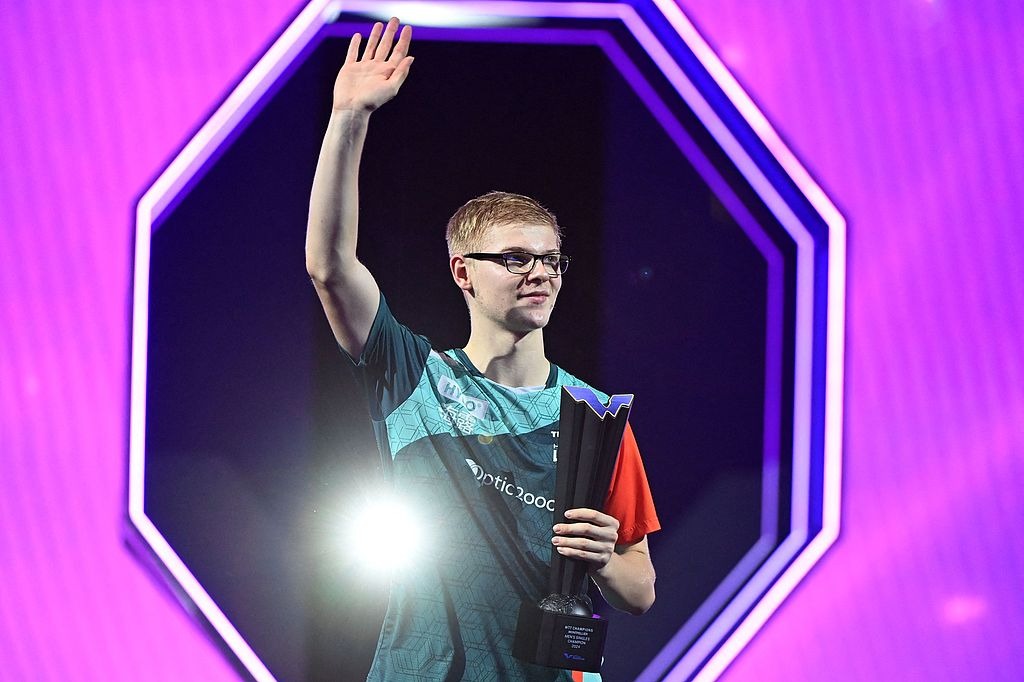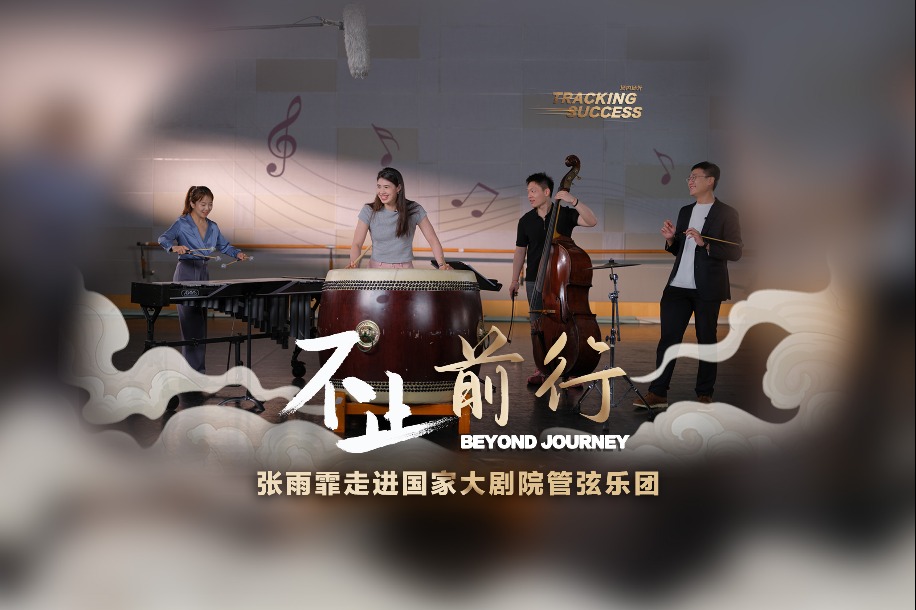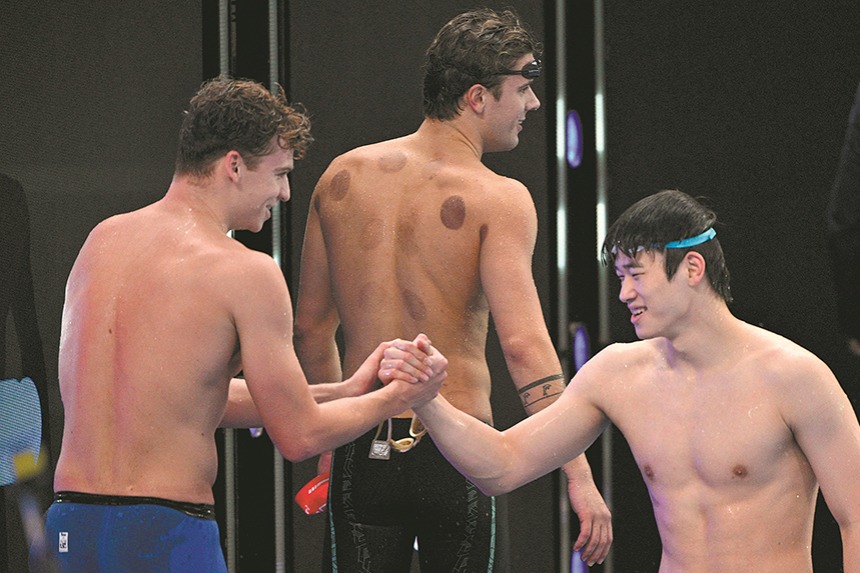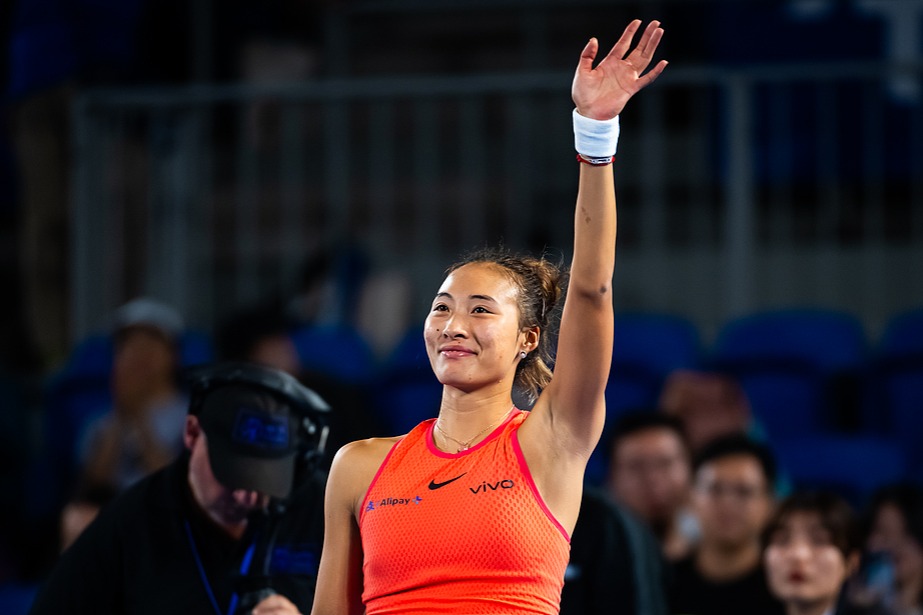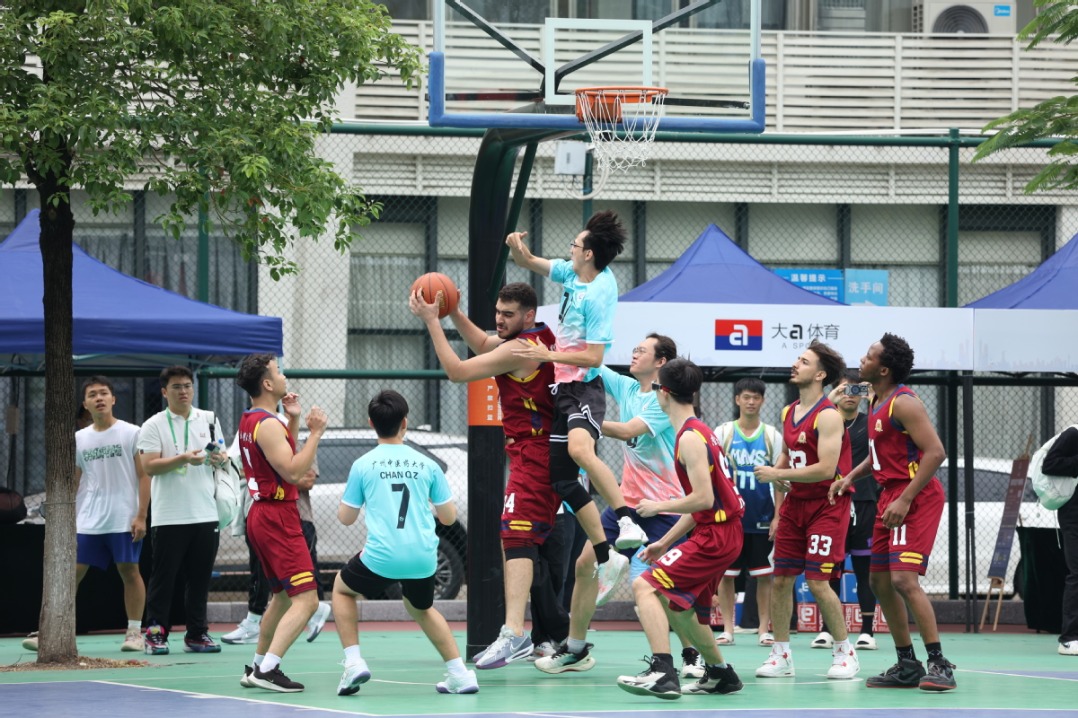Track and field of dreams

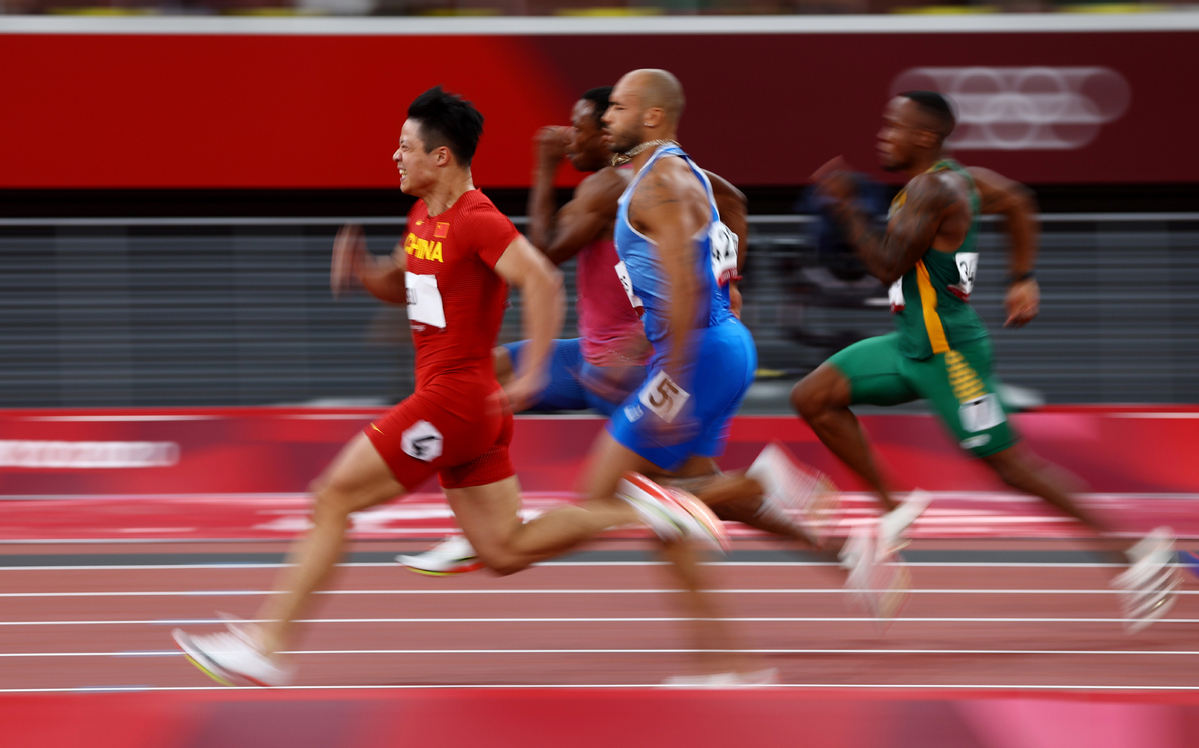
Appliance of science
China's improvements in track and field in Tokyo are part of an upward curve that began after the Rio Olympics.
At the 2017 world championships, China claimed two gold, three silver and two bronze medals. Two years later at the Doha worlds, it finished with three medals in each of the colors, the nation's best ever result at the worlds since the 1993 edition in Stuttgart.
At the Tokyo Games, China sent 59 athletes to compete in 24 track and field events with an average age of around 27.
Applying scientific training methods and participating in more international competitions are credited as key reasons for the success.
"Achieving breakthroughs in modern competitive sports depends on the application of scientific technologies in training," said team official Guan. "In recent years, China's athletics team has paid greater attention to this."
The team used image-processing technology to analyze athletes' movements, and reduced injuries through advances in nutrition, rehabilitation, psychology and medical science.
It seems the recruitment of world-renowned coaches has also had the desired effect.
Su's American coach, Randy Huntington, for example, was hired by the Chinese Athletics Association in 2013. Huntington, who has worked with the likes of current men's long jump world-record holder Mike Powell and 1980s triple jump great Willie Banks, primarily oversaw China's sprinting and long jump teams, but even proved beneficial to 800m runner Wang.
"When nobody believed I could do it, only Randy trusted me," Wang said. "He kept encouraging me. In his heart, he does not just believe that I can stand on the podium, he also thinks I can challenge anyone."
Sending athletes to train and compete abroad more frequently has also contributed to the turnaround.
Before the outbreak of the COVID-19 pandemic in early 2020, the Chinese athletics team had signed contracts with more than 20 overseas training bases.
"Hiring foreign coaches and sending athletes abroad helped us change our training concept, while the scientific training broke the bottleneck of improvement. All these things have allowed us to achieve the breakthroughs in recent years," said Guan.
More to come
Although winning fewer medals in Tokyo than at previous Games, the US still dominated the athletics program, underlining the sizable task ahead of China to catch up to its rival.
And with many of China's medalists and finalists in their 30s, ensuring younger talents are ready for action at the 2024 Paris Olympics will be vital.
Veteran Su has yet to confirm his post-Games plans, although triple jumper Zhu has already set his sights on the future.
"I haven't reached the top of my journey in the triple jump. I need to keep climbing and be a really successful jumper," said the 27-year-old. "I will definitely come back for Paris 2024, and maybe even 2028 in Los Angeles."
Most Popular
- China Squash Open launches in October
- Chinese player Cui Yongxi makes NBA debut with Brooklyn Nets
- Felix Lebrun claims historic home victory at WTT Montpellier Champions
- Ancelotti rues Real's missed chances against rampant Catalans
- Exclusive interview with Olympic champion Zhang Yufei
- Proud Flick delighted with another dominant Barcelona display
















